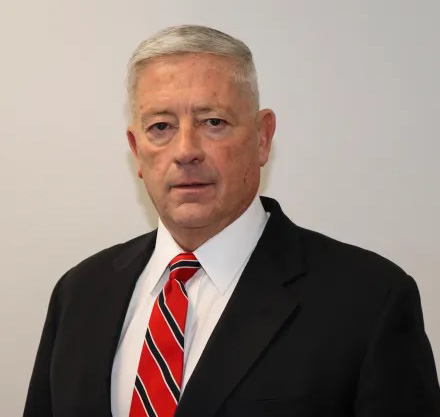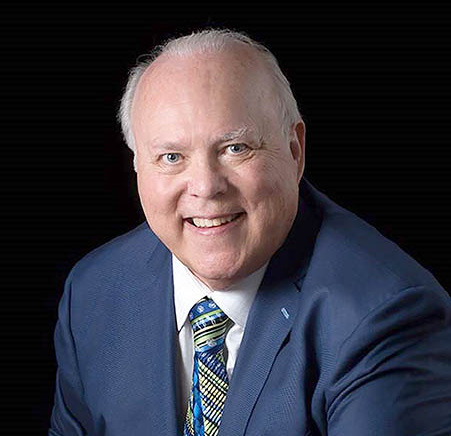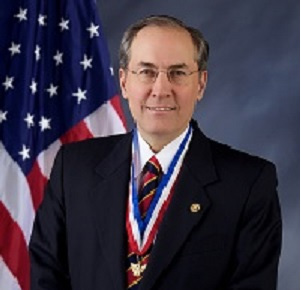Scouting provides a series of surmountable obstacles and steps in overcoming them through the advancement method. Scouts plan their own advancement and progress at their own pace as they meet each challenge. Scouts are recognized and rewarded for each achievement, which helps them gain self-confidence. The steps in the advancement system help a Scout grow in self-reliance and in the ability to help others.
Advancement is the process by which youth members of Scouting America progress from rank to rank and is the method by which we promote and encourage the ongoing involvement and commitment that keeps members coming back for more. It works best when it is built into a unit’s program so that simply participating leads to meaningful achievement and recognition—and to a continually improving readiness for more complex experiences.
It Is a Method—Not an End in Itself
Advancement is simply a means to an end, not an end in itself. It is one of several methods designed to help unit leadership carry out the aims and mission of Scouting America.
Advancement Is Based on Experiential Learning
Everything done to advance—to earn ranks and other awards and recognition—is designed to educate or to otherwise expand horizons. Members learn and develop according to a standard. This is the case from the time a member joins and then moves through the programs of Cub Scouting, Scouting America, and Venturing or Sea Scouts.
Experiential learning is the key: Exciting and meaningful activities are offered, and education happens. Learning comes from doing. For example, youth may read about first aid, hear it discussed, and watch others administer it, but they will not learn it until they practice it. Rushing a Scout through requirements to obtain a badge is not the goal. Advancement should be a natural outcome of a well-rounded unit program, rich in opportunities to work toward the ranks.
It is important to note, as with any educational opportunity, a rank or award is not the end of the learning process. In Scouting, after a requirement has been passed, the Scout is placed in practical situations that build retention through repeated use of skills. For example, a Scout plays games that feature the skills, teaches other Scouts, and perhaps practices the skills in “real-life” outdoor experiences. A well-rounded and strong unit program takes advantage of these kinds of opportunities, using them to improve retention through practical application.
Personal Growth Is the Primary Goal
Scouting skills—what a young person learns to do—are important, but not as important as the primary goal of personal growth achieved through participating in a unit program. The concern is for total, well-rounded development. Age-appropriate surmountable hurdles are placed before members, and as they face these challenges they learn about themselves and gain confidence.
Learning Scout skills and concepts through active participation is a vehicle for personal growth, but it is not the primary goal. For example, learning how to tie a knot, plan a menu, swim, or administer first aid may turn out to be critical in one’s life, but they are secondary to the goal of personal growth that comes with learning. As Scouts learn skills and are tested on them, and then reviewed and recognized, they develop confidence. They come to realize they can learn and do other similar things. The retention of Scouting skills and knowledge is important, of course; but for retention to take place, it will be because Scouting skills and knowledge are used in our programs.
Success is achieved when we fulfill the Scouting America Mission Statement and when we accomplish the aims of Scouting: character development, citizenship training, leadership, and mental and physical fitness. We know we are on the right track when we see youth accepting responsibility, demonstrating self-reliance, and caring for themselves and others; when they learn to weave Scouting ideals into their lives; and when we can see they will be positive contributors to our American society.
Advancement Requires Mentorship
Though certainly goal-oriented, advancement is not a competition. Rather, it is a joint effort involving the adult leaders, the youth members, other volunteers such as merit badge counselors or Venturing consultants, and the family. Though much is done individually at their own pace, youth often work together in groups to focus on advancement at Cub Scout den meetings, for example, or participate in a Scouting America camp out or Sea Scout cruise. As they do this, we must recognize each young person’s unique combination of strengths and weaknesses. As watchful leaders, either adult or youth, we lend assistance as called for and encourage members to help each other according to their abilities.
From Cub Scouting through Venturing and Sea Scouts, we put the methods to work. Together they lead to mission fulfillment. For example, the methods of the Scouting America program are Scouting ideals, the patrol method, advancement, adult association, outdoor program, the uniform, personal growth and leadership development. Scouting ideals, put forth in the timeless instruments of the Scout Oath and Scout Law, represent the most basic method. Moving on, we know young people want to belong to groups. Throughout the Scouting program, we provide a place where the sense of belonging is an outcome of practicing skills, exploring interests, learning values, forming friendships, and enjoying adventure. Associations within families and with a variety of adults are critical too, especially in terms of providing support and recognition and in developing mutual respect.
Policy on Unauthorized Changes to Advancement Program
No council, committee, district, unit, or individual has the authority to add to, or subtract from, advancement requirements. There are limited exceptions relating only to members with special needs.
There are mandated procedures with words such as “must” and “shall.” Where such language is used, no council, committee, district, unit, or individual has the authority to deviate from the procedures covered, without the written permission of the National Advancement Program Team.
Recommended best practices are offered using words like “should,” while other options and guidelines are indicated with terms such as “may” or “can.” Refer questions on these to your local district or council advancement chairs or staff advisers. They, in turn, may request interpretations and assistance from the National Advancement Program Team.
Advancement Resources provide additional information about advancement. Links are provided to materials that are available online.
Awards Central is where the most up-to-date information about Scouting America-related awards may be found, including award applications and nomination forms.
Updated 2025
Many merit badge updates became effective January 01, 2025. Both Scoutbook and on the online Merit Badge Hub (https://www.scouting.org/skills/merit-badges/) have been updated.
The last rank changes were in 2024. Scouts may continue using the existing requirements for the rank on which they are currently working, but must use the new requirements once they advance to their next rank.
- Age Requirement Eligibility
- Rank Advancement for Venturers and Sea Scouts
- Current Scout Rank Requirements | Previous
- Current Tenderfoot Rank Requirements | Previous
- Current Second Class Rank Requirements | Previous
- Current First Class Rank Requirements | Previous
- Current Tenderfoot, Second Class, and First Class Ranks Alternative Requirements | Previous
- Current Star Rank Requirements | Previous
- Current Life Rank Requirements | Previous
- Current Eagle Rank Requirements | Previous
- Current Eagle Scout Rank Alternative Requirements | Previous
- Current Eagle Palms | Previous
- Current Scouting America Rank Requirements | Previous
- Merit Badges and Requirements
- 2022 Scouts BSA Requirements book
- 2023 Scouts BSA Requirements book
Special Opportunities
- 50-Miler Award
- Boardsailing Scouting America
- Scouting America Distinguished Conservation Service Award
- Scouting America Lifeguard
- Scouting America Stand Up Paddleboarding
- Cyber Chip
- Complete Angler
- Den Chief Service Award
- Firem’n Chit
- Historic Trails Award
- Interpreter Strip
- Kayaking Scouting America
- Mile Swim Scouting America
- Morse Code Interpreter Strip
- National Court of Honor Lifesaving, Meritorious Action and Heroism Awards
- National Medal for Outdoor Achievement
- National Outdoor Awards
- Nova and Supernova Awards
- Outdoor Ethics Action Award
- Outdoor Ethics Awareness Award
- Paul Bunyan Award
- Religious Emblems
- Scuba Scouting America
- Snorkeling Scouting America
- Totin’ Chip
- White Water Rafting Scouting America
- World Conservation Award




